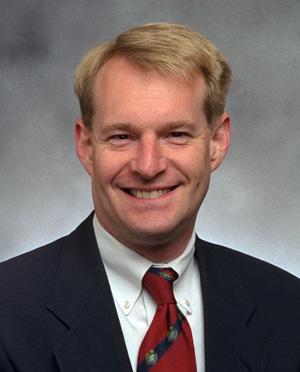
By Barb Arland-Fye
Attorneys for the Davenport Diocese are asking a bankruptcy court judge to reconsider her order to release the names of 23 accused abusers whom the diocese argues have not been credibly accused.
Claims against the 23 men had been allowed in bankruptcy court and some clergy sex abuse victims received a settlement as a result of a special arbitrator’s decision, according to court records. But those names have not been released to the diocese.
During an Oct. 7 hearing on the diocese’s compliance with the nonmonetary obligations in its $37 million bankruptcy settlement, an attorney for some victims asked that the 23 names be publicly released. Dick Davidson, the diocese’s bankruptcy attorney, said the diocese did not have access to those names.
Judge Lee Jackwig ordered the settlement trustee by Oct. 28 to provide the diocese with the list of the previously unreleased names of accused abusers for whose acts claims were paid by the special arbitrator. She ordered the diocese to post the names on its Web site no later than five days after receiving the list.
“We’re asking the court to reconsider this order because first of all we can’t figure out how the creditors’ attorneys came up with the 23 names,” Rand Wonio, a diocesan attorney, told The Catholic Messenger on Oct. 13.
Thorough investigations by the Diocesan Review Board and special investigator James Sweeney — whose appointment was approved in bankruptcy court — determined that accusations against 16 clergymen were not credible, Wonio said. Thirteen of the 16 are deceased. Two of the 16 are retired and not in active ministry. The other accused person was a minor seminarian many years ago. A greater preponderance of evidence is required in determining credible allegations against deceased clergymen because they are unable to defend themselves.
At the Oct. 7 hearing, Craig Levien, an attorney for some of the victims, claimed the diocese was withholding 23 names of accused abusers. He said the names had been brought up during an atonement service in June, but had not been acted upon.
“An atonement service is not a court proceeding. Court is where you get due process,” Wonio said. “Our understanding was that the special arbitrator in the bankruptcy proceedings had one meeting with the claimants and that he was not making a determination of whether these priests were credibly accused. He received no information other than what the claimants told him,” Wonio continued.
“If we are required to list these people who we have thoroughly investigated and found the claims against them to not be credible, a lot of innocent priests are going to get smeared with no due process and a lot of people in the church will be hurt.”
The list of accused abusers was not the only source of disagreement between attorneys for the creditors and the diocese at the Oct. 7 hearing. As a result, Judge Jackwig gave attorneys for both sides until Oct. 28 to fine-tune the nonmonetary agreement and to resolve disputes over specific items. If agreement can’t be reached, the settlement trustee will issue a report and the diocese will have an additional two weeks to respond.
The judge found shortcomings in the diocese’s compliance with its nonmonetary agreement with survivors of clergy sexual abuse. But she said she hopes the survivors feel at least a little bit better about the efforts of Bishop Martin Amos and the diocese to prevent abuse from happening in the future.
Her observations came at the end of the 2-1/2-hour hearing Oct. 7 in U.S. District Court in Davenport where Bishop Amos testified about his and the diocese’s compliance with the settlement that was approved in 2008. Also testifying were the diocese’s Victim Assistance Coordinator Alicia Owens and abuse survivor Steve Alex, who described the trauma he experienced as a child. He expressed suicidal feelings while testifying and asked the judge and the diocese for counseling, which he said the diocese had previously turned him down for. A debate ensued between attorneys over responsibility for obtaining counseling for survivors, like Alex, who have received the minimum $10,000 bankruptcy payment. The diocese will provide Alex with counseling.
Another source of debate was the extent of Bishop Amos’ role in publicly supporting elimination of the criminal statute of limitations for child sex abuse. “You have an opportunity to make a difference,” Judge Jackwig told Bishop Amos. “I will do that, your honor,” the bishop said.
Other areas of dispute:
• Reports on retired Bishop Lawrence Soens submitted to the Vatican representative to the United States. Bishop Soens, the retired bishop of Sioux City, was accused of abusing students while he was a priest in the Davenport Diocese. The creditors’ attorneys want the reports made public. The diocese said canon law prohibits its public release.
• Priest affidavits. All priests working in the diocese were required to sign an affidavit that they have never sexually abused a minor or know of any other priest or diocesan employee who has abused anyone. Levien wants priests to sign an affidavit every year. Bishop Amos said the priests are well aware of reporting and prevention efforts. For that reason, he believes annual affidavits are unnecessary.
• Posting of plaques in diocesan schools. Levien wants each school to provide a sworn statement of the date of posting and placement of plaques that contain information about sexual abuse. Bishop Amos said he would have no objection to that request.








